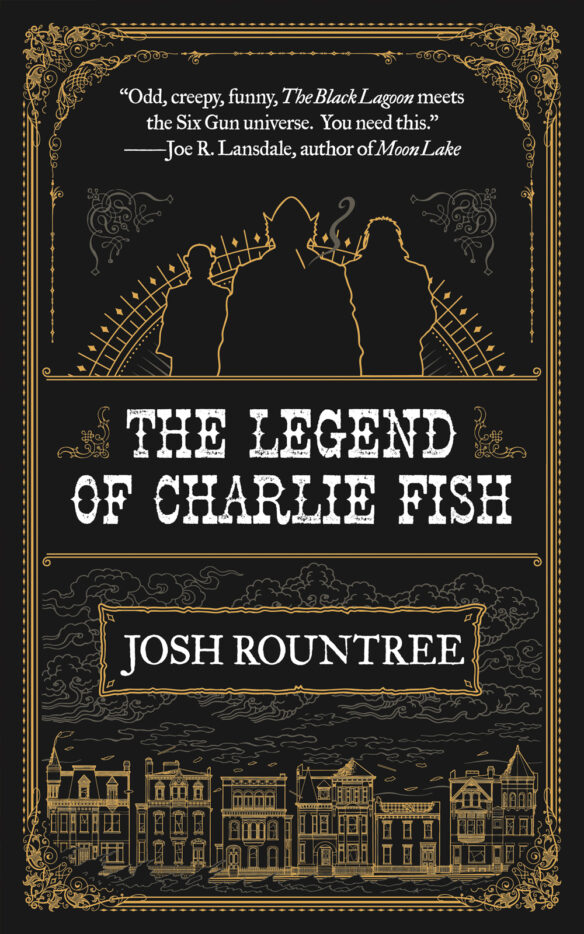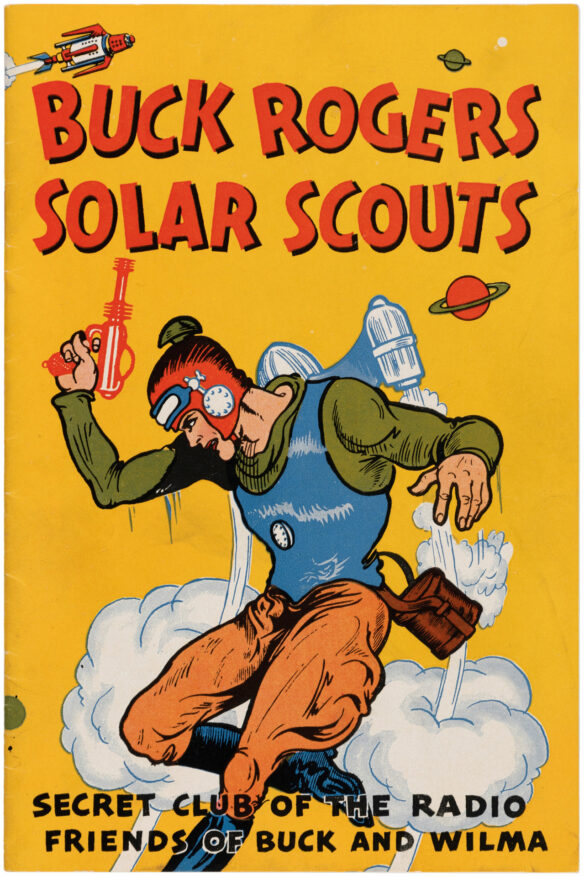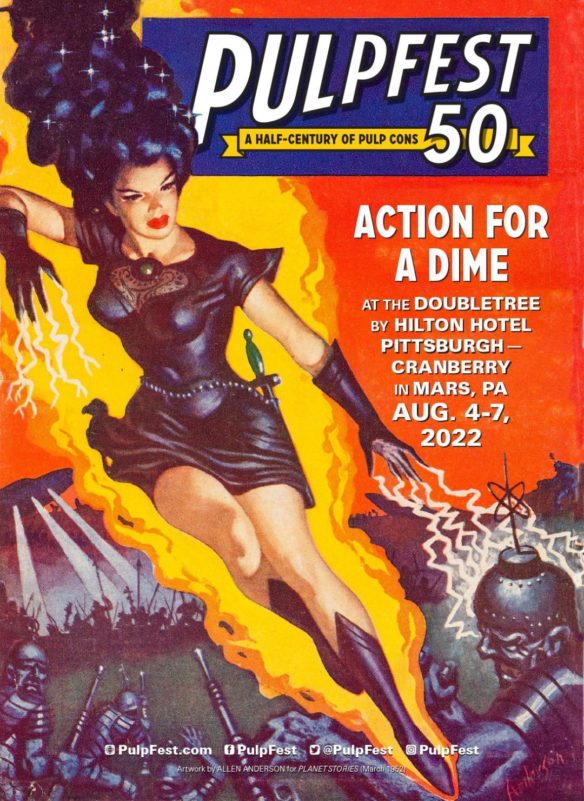(1) FANTASY TAKES CENTER STAGE. The Guardian’s “Bookmarks” newsletter says, “Fantasy appears to be having a ‘moment’ (quite a long one as it happens)”
“Increasingly fantasy has moved more from the fringes towards the centre”, with a rise in writers operating in the genre, says Irenosen Okojie, who founded the afrofuturist festival Black to the Future and whose books include Curandera.
Why is the genre thriving? Readers “need escapism right now in ways that truly speak to our imagination”, says Okojie, and they “like these richly imaginative worlds that explore our lived experiences in dynamic, transformative ways”. Fantasy is also “invested in projecting how worlds different from our own might flourish”, says Matthew Sangster, a professor of romantic studies, fantasy and cultural history at the University of Glasgow.
However, even though the “success of the likes of George RR Martin and Nnedi Okorafor” show fantasy is a “thriving space”, says Okojie, it “always has been”: look at the likes of Ursula K Le Guin and Samuel R Delany.
George Sandison, managing editor at Titan Books – which publishes VE Schwab and Veronica Roth – agrees. Though he often hears that a particular genre is “having a moment”, when it comes to fantasy, he feels as though “that moment has lasted my entire career in fiction, my entire life before that, and for the countless generations required to produce all the work that lit up my brain as a child!”
Fantasy “is arguably at the root of all literature”, he says – even Virginia Woolf. Every work of fiction “imagines a whole new reality”, fantasy “just has a lot more fun with those mental images, turning them into dragons and talking cats, giving them magic powers, and breaking them free of our planet’s geography”. He sees the publishing industry’s categorisations of fantasy as simply telling readers what metaphors and tropes to expect, “to try to sell more books”….
(2) CTHULHU IS ON THE LINE. Christopher Lockett, in “China Miéville and the Banality of Weird”, has a Lovecraft quote from almost a century ago that is still capable of launching discussions:
…Once again, the best articulation of this premise is the opening paragraph of “The Call of Cthulhu,” which functions as about as perfect a Lovecraftian mission statement as you’ll find:
“The most merciful thing in the world, I think, is the inability of the human mind to correlate all its contents. We live on a placid island of ignorance in the midst of black seas of infinity, and it was not meant that we should voyage far. The sciences, each straining in its own direction, have hitherto harmed us little; but some day the piecing together of dissociated knowledge will open up such terrifying vistas of reality, and of our frightful position therein, that we shall either go mad from the revelation or flee from the deadly light into the peace and safety of a new dark age. (139)”
To be fair to Lovecraft, he was writing in the 1920s and 30s, and he died before the outbreak of WWII. He wrote during the post-WWI crisis of spirit and the more general collapse of faith in such prewar verities as the invariably positive nature of scientific and technological progress. His work shares the alienation and disillusion present in the critical mass of modernism, alongside its often desperate pursuit of meaning in arcana.³ His fascination with and nominal devotion to science, along with his militant atheism, coexisted with his figurations of occultism in a manner entirely consonant with the historical moment: science and technology shorn of utopianism by the horrors of the Western Front, seeming to hint at vaster horrors beyond human ken.
In that respect he was not wrong: the war he didn’t live to see ended in the unthinkable. The Holocaust and Hiroshima would seem to represent the “terrifying vistas of reality” warned of in the passage above and allegorized by such Old Gods as Cthulhu and his monstrous kin. But if those unthinkable events have shown us anything, it’s the basic flaw of Lovecraft’s premise: far from going “mad from the revelation” or fleeing “from the deadly light into the peace and safety of a new dark age,” humanity has demonstrated instead an apparently bottomless capacity to make the unthinkable thinkable. Indeed—with the benefit of time, self-rationalization, mythologization, and a massive dose of delusional euphemism—to render the unthinkable banal….
(3) OLD SCAM, NEWLY HATCHED. Victoria Strauss warns about “USA Pen Press: The Ghostwriting Scam of a Thousand Websites” at Writer Beware.
… Ghostwriting scams pose as publishing service providers. Like the similar similar-seeming publishing/marketing scams from the Philippines, they are based overseas, primarily in Pakistan and India, and offer menus of publishing and marketing services designed to attract writers looking to self-publish or to market their books.
Also like the Philippine scams, they frequently take writers’ money and run, or deliver substandard quality, or treat whatever package or service the writer initially buys as a gateway to the writer’s bank account, relentlessly pressuring them to hand over more cash….
… It didn’t take long on USA Pen Press’s website for me to identify it as a ghostwriting scam. Many of the typical markers are there: the prominent advertising of ghostwriting services, of course, but also an array of trad-pubbed book covers to falsely imply USA Pen Press had something to do with them, a header image (see above) with even more false references to famous writers, “testimonials” that all sound alike and in one case reference a different company, awkward English (“How Do the USA Pen Press Work on the Book Covers?” “What the process of Ghostwriting includes?”), and false claims (they say 10+ years in business but as of this writing, their web domain is just 119 days old)….
(4) IT WAS THE WORST OF TIMES. [Item by Steven French.] Another day, another piece on Dick and dystopias: “The PKD Dystopia” by Henry Farrell at Programmable Mutter.
This is not the dystopia we were promised. We are not learning to love Big Brother, who lives, if he lives at all, on a cluster of server farms, cooled by environmentally friendly technologies. Nor have we been lulled by Soma and subliminal brain programming into a hazy acquiescence to pervasive social hierarchies.
Dystopias tend toward fantasies of absolute control, in which the system sees all, knows all, and controls all. And our world is indeed one of ubiquitous surveillance. Phones and household devices produce trails of data, like particles in a cloud chamber, indicating our wants and behaviors to companies such as Facebook, Amazon, and Google. Yet the information thus produced is imperfect and classified by machine-learning algorithms that themselves make mistakes. The efforts of these businesses to manipulate our wants leads to further complexity. It is becoming ever harder for companies to distinguish the behavior which they want to analyze from their own and others’ manipulations.
This does not look like totalitarianism unless you squint very hard indeed. As the sociologist Kieran Healy has suggested, sweeping political critiques of new technology often bear a strong family resemblance to the arguments of Silicon Valley boosters. Both assume that the technology works as advertised, which is not necessarily true at all.
Standard utopias and standard dystopias are each perfect after their own particular fashion. We live somewhere queasier—a world in which technology is developing in ways that make it increasingly hard to distinguish human beings from artificial things. The world that the Internet and social media have created is less a system than an ecology, a proliferation of unexpected niches, and entities created and adapted to exploit them in deceptive ways. Vast commercial architectures are being colonized by quasi-autonomous parasites. Scammers have built algorithms to write fake books from scratch to sell on Amazon, compiling and modifying text from other books and online sources such as Wikipedia, to fool buyers or to take advantage of loopholes in Amazon’s compensation structure. Much of the world’s financial system is made out of bots—automated systems designed to continually probe markets for fleeting arbitrage opportunities. Less sophisticated programs plague online commerce systems such as eBay and Amazon, occasionally with extraordinary consequences, as when two warring bots bid the price of a biology book up to $23,698,655.93 (plus $3.99 shipping)….
(5) READING BINGO. If Reddit’s “OFFICIAL r/Fantasy 2024 Book Bingo Challenge!” ends up on the Hugo ballot, that will be because its creators are drumming up support in posts like this: “For Your Consideration: r/Fantasy’s 2024 Bingo Challenge is Eligible for a Hugo Nomination for Best Related Work”. Apparently, they’ve been doing these challenges for ten years. Everybody does eligibility posts now – and you might find the challenge an item of interest in its own right.
(6) ROBERT BLOCH RARITIES. Here’s “What’s New at the Robert Bloch Official Website.
- Read the first two pages of an operatic Libretto Bloch wrote for Gaston Leroux’s novel, The Phantom of the Opera.
- IN 1980, Bloch penned a script for the pilot of a proposed weekly TV spinoff series of the (Stephen King) Salem’s Lot TV movie that recounted the further adventures of Ben Mears and Mark Petrie. Sadly, what we have is not the complete script (of 54 pages), rather a random sampling, the only pages available, captured during an auction of the script. Still, an interesting find!
(7) TODAY’S DAY. [Item by Daniel Dern.] Today in the UK is National Yorkshire Pudding Day. Learn more from the Yorkshire Post’s 2020 article “When is it, origins of the side dish, and the best Yorkshire Pudding recipe”. Note, the article includes a recipe.
Depending on who you ask, where you search, or how you feel about it, Yorkshire Pudding and popovers either are or aren’t the same thing, although they’re clearly related. Here’s some of those opinions (and more recipes):
(8) JAY SMITH OBITUARY. Costuming fan Jay Smith died January 27, 2025. The International Costumers Galley announced on Facebook:
Jay Smith was a costumer, attending conventions primarily in California, going back to Equicon. He was an actor and worked Renaissance Fairs and The Great Dickens Christmas Fair, where he was known for his portrayal of Father Christmas. He was beloved for his portrayal of the character for decades at many events.
At the link is a photo of Smith wearing a “Redesign of Superman” from Equicon 1985 by Civi Poth.
(9) MEMORY LANE.
[Written by Cat Eldridge.]
Buck Rogers serial (1939)
Eighty-six years ago, the Buck Rogers serial, produced by Universal Pictures, first was in the theaters. It starred Buster Crabbe (who had previously played the title character in two Flash Gordon serials and would return for a third.) Buster was sometimes billed as Larry Crabbe as well as you will note in the poster below.
I don’t think I need to say that it’s based on the Buck Rogers character as y’all know that as created by Philip Francis Nowlan but for the sake of the few Filers who will nitpick if I don’t I will.

It was directed by Ford Beebe was Saul A. Goodkind as written by Norman S. Hall, Ray Trampe and Dick Calkins. It would run for twelve chapters of roughly twenty minutes each.
As I said Buck Roger was Larry “Buster” Crabbe with Constance Moore as Wilma Deering, and Jackie Moran as “Buddy” Wade, an original character who was based on the Sunday strip character Buddy Deering.
It had a really small budget and re-used film footage from the futuristic Thirties musical Just Imagine.
In 1953, it was edited into the film Planet Outlaws and twelve years later it was edited again into Destination Saturn, and not to stop there, the late Seventies saw the latter release of the latter as Buck Rogers. All three were feature films.
Not surprisingly, you can watch it online as it’s public domain — here is the first chapter
(10) COMICS SECTION.
- The Argyle Sweater makes a different sound of music.
- Carpe Diem reveals there’s wi-fi in Mordor.
- Saturday Morning Breakfast Cereal wonders whether AI is the biggest threat. Maybe.
(11) HOLD YOUR BREATH FOR A COUPLE OF MONTHS, PLEASE. Popular Science learns that in Poland a “Fire-breathing dragon sculpture not allowed to breathe fire”.
A famous dragon sculpture that spits out real fire is going to be a little less dramatic this month. The Wawel Dragon–or Smok Wawelski–in Krakow, Poland will have to hold its fiery breath so that authorities can see why it has been guzzling too much fuel lately.
Krzysztof Wojdowski, spokesman for Krakow’s road infrastructure office, told the Associated Press that officials will inspect the gas lines and pipes that feed the 19-feet metal dragon to look for ways to reduce energy bills. The sculpture is expected to begin to breathe fire again by March, pending the investigation….

(12) PWNING THE LIBS? The New York Times reports “E.V. Owners Don’t Pay Gas Taxes. So, Many States Are Charging Them Fees.” (Behind a paywall.)
Owners of electric cars in Vermont recently got a letter from the Department of Motor Vehicles with some bad news. Starting Jan. 1 they would have to pay $178 a year to register their cars, twice as much as owners of vehicles with internal combustion engines.
In imposing the higher fee, Vermont became the latest state to make people pay a premium for driving electric. At least 39 states charge such annual fees, including $50 in Hawaii and $200 in Texas, according to the National Conference of State Legislatures. That’s up from no states a few years ago.
Now, as President Trump rolls back Biden administration measures to promote electric vehicles, Republicans in Congress are considering imposing a national fee to bolster the fund used to finance roads and bridges, a fund that is in dire shape.
The fees are an attempt to make up for declining revenue from gasoline taxes that electric cars, for obvious reasons, don’t pay. They’re an example of how governments are struggling to adjust to technological upheaval in the auto industry.
Environmentalists and consumer groups agree that electric vehicle owners should help pay for road maintenance and construction. But they worry that Republicans, who control Congress, would set the fee at extremely high levels to punish electric vehicle owners, who tend to be liberals…
And yet somehow not all owners of companies that make electric cars are liberals….
(13) THIS IS THE DROID YOU’RE LOOKING FOR. Cool. And really expensive. “RoboCop – ED-209 1/3 Scale Statue”. Price tag: $3,100.
Wikipedia explains:
The Enforcement Droid Series 209, or ED-209, is a fictional heavily armed robot that appears in the RoboCop franchise. It serves as a foil for RoboCop, as well as a source of comic relief due to its lack of intelligence and tendency towards clumsy malfunctions.
The sales pitch says:
Premium Collectibles Studio presents their ED-209 1/3 Scale Statue. Hailing from the sci-fi classic RoboCop, this piece stands nearly 35 inches tall. Featuring every rivet, plate, and movie-accurate feature of the iconic Enforcement Droid, the finish is in a slate gray and matte black. Included is a pedestal base with the OCP logo, making it a striking addition for any RoboCop fan.

(14) I NOW PRONOUNCE YOU. Ryan George does a hilarious Tolkien-themed “When Your Friend Won’t Admit He’s Wrong” bit which some might say is NSFW, though really just for the last couple seconds, and not even then if you work for Frederick’s of Hollywood….
(15) FANGS FOR THE MEMORIES. Once upon a time actor Jonathan Frid, Dark Shadows’ Barnabas Collins, appeared as a celebrity guest on What’s My Line – vampire dentures and all.
[Thanks to Andrew Porter, John King Tarpinian, Chris Barkley, Rich Lynch, John Hertz, Cat Eldridge, SF Concatenation’s Jonathan Cowie, Steven French, Kathy Sullivan, Teddy Harvia, and Mike Kennedy for some of these stories. Title credit belongs to File 770 contributing editor of the day John Hertz.]































